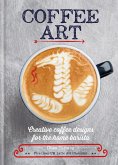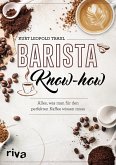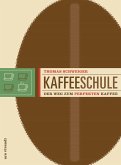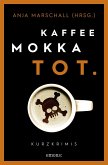How to Make Coffee explores the scientific principles behind the art of coffee making, along with step-by-step instructions of all the major methods, and which beans, roast, and grind are best for them.
This book also covers topics such as:
The history of the beanChemical compositionCaffeine and decafMilkRoasting and grindingMachines and gadgets. . . and many more
Caffeine is the most widely consumed mind-altering molecule in the world; we cannot get enough of it. How is it that coffee has such a hold? Its all in the chemistry; the molecular structure of caffeine and the flavour-making phenols and fats that can be lured out from the bean by roasting, grinding and brewing.
Making good coffee depends on understanding the science: why water has to be at a certain temperature, how roast affects taste, and what happens when you add cream. This book lays out the scientificprinciples for the coffee-loving non-scientist; stick to these and you will never drink anordinary cup of joe again.
Hinweis: Dieser Artikel kann nur an eine deutsche Lieferadresse ausgeliefert werden.
This book also covers topics such as:
The history of the beanChemical compositionCaffeine and decafMilkRoasting and grindingMachines and gadgets. . . and many more
Caffeine is the most widely consumed mind-altering molecule in the world; we cannot get enough of it. How is it that coffee has such a hold? Its all in the chemistry; the molecular structure of caffeine and the flavour-making phenols and fats that can be lured out from the bean by roasting, grinding and brewing.
Making good coffee depends on understanding the science: why water has to be at a certain temperature, how roast affects taste, and what happens when you add cream. This book lays out the scientificprinciples for the coffee-loving non-scientist; stick to these and you will never drink anordinary cup of joe again.
Hinweis: Dieser Artikel kann nur an eine deutsche Lieferadresse ausgeliefert werden.








